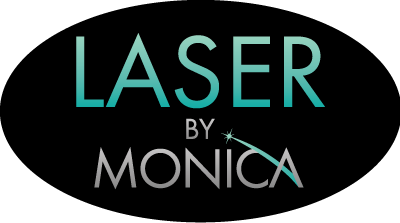
Laser skin treatments are incredibly popular because they’re effective, non-invasive solutions for a wide range of skin concerns. Lasers can target signs of aging and skin discoloration and remove unwanted hair. Treatments typically take an hour or less, cause minimal discomfort, and require no downtime, allowing you to return to your regular activities right away.
In a perfect world, a single laser treatment could deliver all the potential benefits of lasers at once. That’s not the world we live in, though. While there’s some overlap in what various types of lasers can do, the reality is that each laser is designed to achieve specific results. Read on to find out how, on occasion, laser hair removal may help with hyperpigmentation.
Does Laser Hair Removal Help With Hyperpigmentation?
For some people, laser hair removal may improve the appearance of dark spots, but in most cases, discoloration requires a separate type of laser treatment. This is due to the way lasers interact with pigments in the skin and hair.
Laser hair removal works by sending bursts of light energy into the hair, specifically targeting the pigment that gives hair its color. The heat destroys the hair follicle, preventing it from growing new hair after treatment.
Laser treatments for age spots, post-inflammatory hyperpigmentation, and sun damage work in a similar way. The laser breaks down pigment in the skin, which the body then eliminates. The treated area usually gets darker temporarily before the pigment cells rise to the surface and flake away.
Pigments in the skin and hair respond differently to various laser wavelengths. The optimal wavelength for removing hair may not be effective for treating hyperpigmentation in the surrounding skin. Results depend on several factors, such as hair color, skin tone, and the specific color of any dark spots.
When you visit a trained technician for laser hair removal, they will prioritize your safety and help you achieve your hair removal goals. They will select the laser wavelength that works best for targeting your hair follicles. If that wavelength also happens to reduce or get rid of hyperpigmentation in the treatment area, consider it an added bonus!
Can Laser Hair Removal Cause Hyperpigmentation?
Yes, there’s a risk that laser hair removal can cause changes in skin pigmentation. Some people may develop hyperpigmentation (darker patches of skin) or hypopigmentation (lighter areas) after treatment. These effects are usually temporary but can be longer-lasting in some cases.
Post-laser hair removal hyperpigmentation is most often a result of post-inflammatory hyperpigmentation (PIH). When the skin becomes inflamed due to irritation or injury, excess melanin may be produced during the healing process. This is the same reason a dark spot can linger after a pimple heals. PIH is typically temporary, and the discoloration usually fades within a few months. Fading can be accelerated with a prescription cream containing hydroquinone.
Laser hair removal can also cause hypopigmentation, which appears as lighter spots on the skin. This side effect is more common in people with darker skin tones. The laser may affect the melanin in the skin as well as the hair pigment, resulting in reduced pigmentation in parts of the treated area.
How to Reduce the Risk of Hyperpigmentation After Laser Hair Removal
The best way to reduce your risk of hyperpigmentation after laser hair removal is to choose a qualified laser hair removal technician who has experience treating a wide range of skin tones. A skilled provider will ask about any previous instances of hypo- or hyperpigmentation to better understand how your skin may respond to treatment. They will then select the most appropriate laser wavelength to minimize the risk of discoloration and ensure safe, effective results.
You can minimize the risk of skin discoloration by avoiding sun exposure before and after laser hair removal treatments. Sun exposure stimulates melanin production, which can increase the likelihood of hyperpigmentation. Staying out of the sun or using broad-spectrum sunscreen helps prevent excess melanin from forming in the treated area.
Proper aftercare can also help reduce the risk of discoloration following laser hair removal. Use cool compresses to soothe any redness, swelling, or irritation right after treatment. Avoid using harsh cleansers on the treated area, and apply gentle moisturizers without heavy fragrances to support the skin’s healing process.
The laser skin treatment specialists at Laser by Monica are dedicated to helping you achieve your hair removal goals safely and effectively at our luxurious New York location. We also offer targeted treatments for pigmented lesions, using the appropriate laser wavelengths to fade dark spots and create a more even skin tone.
Contact Laser by Monica today to learn more about laser hair removal and treatment for pigmented lesions in New York City.
